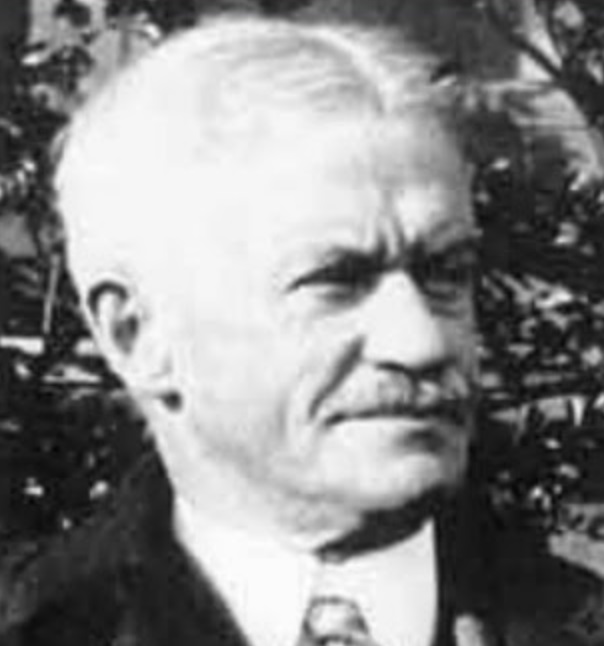 Title
|
Saving Communities
|
|||||||
Home |
Site Map |
Index
|
New Pages |
Contacts |
Get Involved |
 |
Native Radicalism ~ Not LiberalismBy Albert Jay Nockfrom The FreemanA
Monthly Critical Journal of Social and Economic Affairs
|
American radicalism is a virgin field, or better, a long-neglected and fallow field.
Radicalism and liberalism, unfortunately, are often used as interchangeable terms; so used, indeed, by whole myriads who, if a free public school-system is half what it is cracked up to be, ought to know better. Really, one is sometimes reminded of the man who told his little boy that ensilage is a kind of musilage. For present purposes there is no need of contrasting academic and philosophical definitions of the two terms; the dictionary will do that in half the time, and save trouble all round. Some practical distinctions, however - such, for instance, as differentiate a radical from a liberal - are perhaps worth mentioning.
In the philosophy of public affairs, the liberal gets at his working theory of the State by the "high priori road"; that is to say, by pure conjecture. Confronted with the phenomenon of the State, and required to say where it came from and why it is here, the liberal constructs his answer by the a priori method; thus Carey, for example, derived the State from the action of a gang of marauders, Rousseau from a social contract, Sir Robert Filmer from the will of God, and so on. All these solutions of the problem are ingenious and interesting speculations, but nothing more than speculations.
The radical gets at his theory of the State by the historical method; by tracing back and examining every appearance of the State, to the most remote examples that history can furnish; segregating the sole invariable factor which he finds to be common throughout, and testing it both positively and negatively as a determining cause.
The result carries the radical to the extreme point of difference from the liberal in his practical attitude towards the State. The liberal believes that the State is essentially social and is all for improving it by political methods so that it may function according to what he believes to be its original intention. Hence, he is interested in politics, takes them seriously, goes at them hopefully, and believes in them as an instrument of social welfare and progress.
He is politically-minded, with an incurable interest in reform, putting good men in office, independent administrations, and quite frequently in third-party movements. The liberal forces of the country, for instance, rallied quite conspicuously to Mr. Theodore Roosevelt in the good old days of the Progressive Party. The liberal believes in the reality and power of political leadership; thus, again, he eagerly took Mr. Woodrow Wilson on his hands.
The radical, on the other hand, believes that the State is fundamentally anti-social and is all for improving it off the face of the earth; not by blowing up office-holders, but by the historical process of strengthening, consolidating and enlightening economic organization.
The radical has no substantial interest in politics, and regards all projects of political reform as visionary. He sees, or thinks he sees, quite clearly that the routine of partisan politics is only a more or less elaborate and expensive by-play indulged in for the sake of diverting notice from the primary economic exploitation of one class by another; and hence all candidates look about alike to him, and their function looks to him only like that of Dupin's pretended lunatic in "The Purloined Letter."
On the side of economics, the practical difference between the radical and the liberal is quite as spacious. The liberal appears to recognize but two factors in the production of wealth, namely, labour and capital; and he occupies himself incessantly with all kinds of devices to adjust relations between them.
The radical recognizes a third factor, namely, natural resources; and is absolutely convinced that as long as monopoly-interest in natural resources continues to exist, no adjustment of the relations between labour and capital can possibly be made, and that therefore the excellent devotion of the liberal goes, in the long-run, for nothing.
Labour, applied to natural resources, produces wealth; capital is wealth applied to production; so long, therefore, as access to natural resources is monopolized, so long will b0th labour and capital have to pay tribute to monopoly and so long, in consequence, will their relations be dislocated.
The liberal looks with increasing favour upon the socialization of industry, or as it is sometimes called, the democratization of industry. The radical keeps pointing out that while this is all very well in its way, monopoly-values will as inevitably devour socialized industry as they now devour what the liberals call capitalistic industry.
What good would possibly come to labour or capital or to the public, from democratizing the coal-mining business, for example, unless and until monopoly-interest in the coalbeds themselves were expropriated? The miners of England have begun to see this and to shape their demands accordingly.
What use in democratizing the business of operating railways, as long as the franchise-value of railways remains unconfiscated? What use in democratizing the building industry, so long as economic rent continues to accrue to monopoly? No use whatever, as the radical sees it, except for a very moderate amount of educative value that may probably be held to proceed from the agitation of such projects.
Thus the
fundamental differences between the radical and the liberal may be
seen, even from this brief sketch, to be considerable.
We are interested in comments and questions that lead to light, not heat. Comments will be accepted or rejected accordingly.
Saving Communities
631 Melwood Avenue
Pittsburgh, PA 15213
United States
412.OUR.LAND
412.687.5263